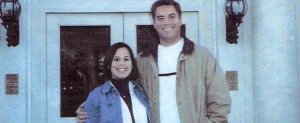In this interview, Mr Spolin discusses the strategy and thought process behind his appellate advocacy.
- What approaches can you take to overturn convictions? Which is the most effective?
Generally, the strongest appeals are the ones where clients’ rights were violated and the client is fully innocent of the crime. This is because judges will bend over backwards to try and keep someone in prison if they think the person is guilty, even if that person’s rights were violated, and they will do the same to try and free someone they truly believe is innocent. Nonetheless, even guilty people have rights. And the truth is that preserving the integrity of the legal system—even for guilty clients—is essential in preventing innocent people from being convicted in the future. For example, if we allow an overly zealous interrogator to physically beat up a guilty person until that person confesses, we make it more likely that a false confession will be physically beaten out of an innocent person who is simply trying to stop the violence against himself or herself. The same logic applies to all sorts of rights violations.
- How do you balance a legal argument alongside an emotional plea? Why is this process important?
Different types of appeals allow different types of arguments. Some appeals, like a direct appeal after a trial, generally only involve clearly defined violations of a client’s rights under state or federal law. Other types of appeals, more accurately described as post-conviction relief, can involve a description of a client’s character and how he or she deserves a second chance in life. For example, earlier this summer when Governor Gavin Newsom commuted the life-without-parole sentence of one of my clients, the governor relied on a somewhat emotional assessment of the client’s character and whether the prior sentence was overly long. In my view, it’s important to always remember that my clients are not one-dimensional. Even people who have made a mistake in life can be deserving of compassion or a second chance.
- When reviewing a case for errors, what do you look out for? How long does this process take?
Reviewing a case for legal errors would involve reading the court transcripts and gathering whatever other information would be helpful to see whether a client’s rights were violated. This whole review process can take anywhere from 10 to 100 hours to complete, depending on the complexity of the case. Most of the common rights violations in criminal cases involve the Bill of Rights of the US Constitution and how courts have interpreted these rights. For example, the right to confront and cross-examine witnesses is based on the Sixth Amendment to the Constitution. Technically, the Bill of Rights only applies to federal cases. However, a principal called the “incorporation doctrine” allows the Fourteenth Amendment to effectively apply most rights to defendants in state courts. The fact that state criminal procedure law often mirrors federal law means that a lot of the criminal appeals issues apply to defendants throughout the country. Of course, there are still many rights created by state law and individual state constitutions, and these issues have to be examined as well.
Nonetheless, delaying the filing of an appeal is generally never a good idea.
- How long do you have to make an appeal? Is there any leeway to this? What cases ought to file for an appeal almost immediately and why?
Some appeals have very strict deadlines while others have much more leeway. A direct appeal after trial, for example, needs to be started just a few weeks after the sentencing. Other types of post-conviction relief, like a writ of habeas corpus, allow for more time. And still, other types of relief have no deadline and can be done years or even decades after a conviction, with the most common example of this being an Application for Commutation of Sentence. Nonetheless, delaying the filing of an appeal is generally never a good idea. Appeals have deadlines so that the public can have a sense of finality in criminal prosecutions. Deadlines also help make sure that any issues that can be raised are raised relatively quickly, before evidence is lost or witnesses’ memories fade.
- Can you outline the appeal process?
Each appeal is different and has a different process. For example, there are direct appeals, writs of habeas corpus, commutations, re-sentencings, and many more. However, the most traditional type of appeal—the direct appeal after sentencing—usually starts with a Notice of Appeal to let the prosecution know that the case is being appealed. After that, the record is compiled by the court clerk and court reporter. Following the record creation, the defense team prepares an Appellant’s Opening Brief, which is the main appeal document outlining how a client’s rights were violated. The government gets a chance to respond in the Respondent’s Brief. Following this step, the defense team often prepares a Reply Brief that refutes or otherwise addresses the government’s brief. Some cases then involve an oral argument and all cases ultimately result in a decision by the appellate court.
Obviously, no two cases are alike, but if a person knows in his heart that he is innocent, the only way to get justice is to not give up.
- What part of the process is most important for you, as the lawyer?
The most interesting aspect of my work is when I review a transcript to find errors or issues that had never been discovered before. Sometimes an appeal will be based on a judge’s ruling that involved an objection from a defense lawyer or a topic that was heavily debated in court already. However, many times I see issues that slipped under the radar during a trial or sentencing, and bringing those issues to light in an appeal can be particularly rewarding.
- What are your tips on winning an appeal?
The most important tip is this: do not give up. Often after a person is convicted they will give up on the world and fall into a depressive spell, not thinking about legal issues. That’s understandable. But the people who are able to eventually overturn their conviction and get out are often the clients who keep fighting and will not give up on themselves. This past January, my firm overturned a wrongful murder conviction in Long Beach Courthouse for a client who had not given up on himself even after losing one appeal after another in court after court, state and federal. Obviously, no two cases are alike, but if a person knows in his heart that he is innocent, the only way to get justice is to not give up.
Aaron Spolin
Spolin Law P.C.
11500 W. Olympic Blvd., Suite 400
Los Angeles, CA 90064
(310) 424-5816
www.spolinlaw.com
Aaron Spolin is a former prosecutor and criminal appeals attorney. He is also the author of Witness Misidentification in Criminal Trials, which discusses the leading cause of wrongful convictions in the United States. Mr Spolin is admitted to practice law in California, New York, Texas, and numerous federal courts, including the United States Supreme Court. He works for Spolin Law P.C., which handles criminal appeals, writs, and other forms of post-conviction relief for clients throughout the United States.





















